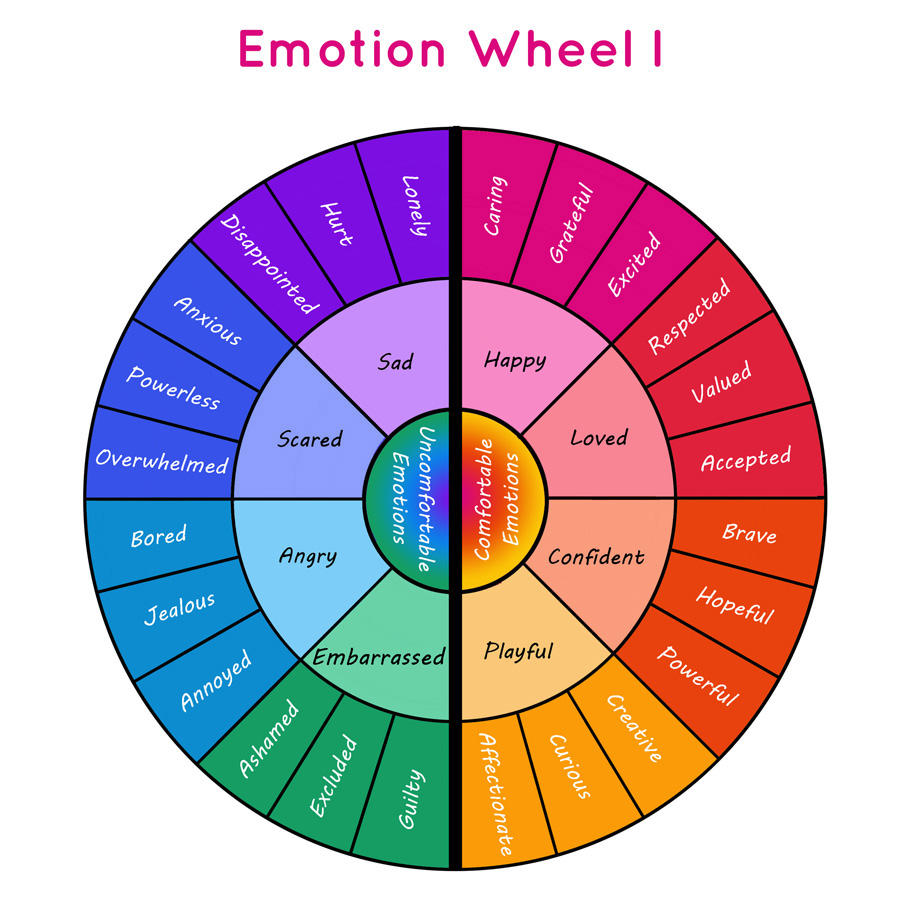The Pivot
Blog entry by Cody Harper MSW RSW
The following mental exercise is something that both myself and my clients are using to manage our responses in arguments or heated discussions with other people. But it comes with a controversial idea that I would like you to consider for a moment:
Other people don't actually make us feel anything.
Not unless they are literally abusing us – or literally pleasing us. The emotions, and our reactions to them, are coming solely from within ourselves.
When I tell this to my clients, the reaction is often split down the middle and half of them tell me that this idea is wrong. Why? Because of course this person is making me feel this way, how could they not? They need to be held accountable for how they make me feel. They don’t just get to be let off the hook, they need to know that their behavior affects me.
I’m not here to argue that you shouldn’t set appropriate boundaries and speak up for yourself. But I am here to argue that not only is the other person not making you feel this way, but that when you adopt this idea, you will have better control of your responses and more control of yourself in these arguments.
Consider a recent incident when you were in an argument with someone. But as you recall the incident, I want you to imagine that just before that argument, you had just recently eaten, you were feeling calm and collected, you were healthy and well rested, and you felt motivated and assured of yourself. You were aware of your faults but also working on improving them, and you believed in your own capabilities. Would you have reacted the same way in that argument?
All of us see the world, including ourselves, through the filter of our own emotions and core beliefs. We infer, we make assumptions, and we anticipate what will happen based on how we are feeling. In fact, we are often completely unaware that this is even happening.
Here is something else to consider: how much control do you think you have over the thoughts and feelings of someone else?
The answer is zero.
We have zero control over other people. Not unless we are literally abusing them or pleasing them. Not unless we are physically assaulting them or giving them cake, and even then, we are still not in total control of them. While it is possible to be influenced by someone’s behavior, in the end it is always we who are the ultimate decision makers of our own actions.
So what do we have control of?
Well, we don’t have control of our emotions, that’s another myth. Emotions are like the weather, they just happen. Even worse is when we think that we aren’t experiencing emotions, and yet we are.
What we do have control over, at least what we can begin to develop better control of, is our understanding and management of our responses to our emotions.
This begins not by focusing on the other person and how to get them to think or behave differently. It starts inside of you, and it starts by reflecting in a very specific way.
Think of that recent argument again, and this time, I’d like you to ask yourself these three questions:
- What was I feeling?
- What did I make that mean?
- When have I felt that before?

Question breakdown
What was I feeling?
The first question can be tricky because we often make the mistake of confusing a feeling with a perception. For example, I might say, “I felt judged.” Judged is not a feeling, it’s an interpretation of what was happening to me.
So, what was I feeling? The answer is usually one or a combination of the following: sadness, shame, or fear. Sometimes I am feeling anger as well, but more often than not, anger is what I think I’m feeling when I am actually feeling something else. I might be angry because I perceive my partner is judging me, but chances are, I am actually feeling sad that they don’t love me, ashamed that I made them upset, or afraid that they might leave me. Maybe all of the above.
With this question, I am also owning my feelings. I am recognizing that my feelings exist within me and are not in the hands of someone else. And by becoming familiar with these feelings, I build a better relationship with them.
If you are finding it difficult to name your feelings, try looking at an Emotion Wheel (though, be careful to find one that doesn’t confuse feelings with perceptions as well).
What did I make that mean?
With this question, I am shifting the focus away from whatever the other person is feeling or thinking (i.e. that which is completely out of my control) and I am instead centering it on myself. If I am experiencing shame in this moment, what do I make that mean? What does it mean that I am feeling ashamed in this situation? That I am unlovable? Inadequate? Undeserving? Is this also affecting my behavior? For example, am I suddenly cleaning the house because I want to be seen as worthy of love?
Moreover, what am I making this mean about the world around me? For example, am I making it mean that the world is cruel and uncaring? How are my emotions colouring the way I see the world and how I see other people?
Another interesting thing to ask yourself is: what if in that moment, I wasn’t feeling sad or scared or ashamed at all? What if instead I was feeling content, calm, and confident? Would I have made this situation mean the same thing? Would I have reacted the same way? Probably not.
When have I felt this before?
I try to think as far back into my personal history as I can. I ask myself, when have I experienced this feeling and this meaning-making before? If I feel ashamed, and I’m making it mean that I’m unlovable, when have I felt ashamed and unlovable in the past? Often, this will lead to memories of interactions with my parents. It will also invariably lead to recalling memories of trauma and neglect.
Now, I should be clear, this is not an exercise meant to shift all the blame onto our parents – though, it’s okay if it does. The point here is not to assign blame. The point is to gain a better understanding of where all of this is coming from.
Then I can think of the entire situation differently. If I was in a fight with my partner and I raised my voice and I felt angry, I’m aware now that in actuality, I was feeling ashamed. I was also making that mean that I was unlovable, and I can recall times in my childhood when I felt unloved by my parents. And now, in this argument with my partner, this flood of emotion and trauma is welling up inside of me…and I’m expecting my partner to soothe that for me.
It’s too much power. I am giving my partner too much power.
That isn’t to say I should never give that power to my partner. That’s why relationships can be so amazing. It’s a wonderful thing to have someone change your perspective for the better, to pull you out of despair. But should I give that power to my partner entirely? Is that even fair to them? The answer is no. In the end, only I can be responsible for myself.
Can I also recognize that whatever my partner is going through is out of my control as well? I should own up to my mistakes, and I can do my best to comfort my partner, to show them that they are not alone. But ultimately, I can only ever hope that my own self-regulation will guide them out of their distress. At the same time, when it comes to regulating my own distress, it is only me who can do it for myself. When I accept that, I can be with my partner when they are upset, knowing that I cannot and should not try to change or fix their emotions. Instead, I should regulate myself first and foremost. I should deepen my understanding of myself so that I can own my own feelings instead of outsourcing them to something or someone that is completely out of my control.
We will always be affected by the distress of those close to us, it’s impossible not to be. But my goal should be to maintain my own self-regulation through that. Creating a calm, open hearted, and compassionate space for my loved ones is the best way to support them.
A final and important note: The three questions listed above are extremely difficult to ask yourself in the moment. So don’t begin there. Ask them in reflection on past incidents, and ask them regularly. By learning to own your feelings, by gaining a better understanding of where they come from and why, you will begin to feel more grounded, more authentic. This pivot away from blaming others for how you feel, to understanding what you have created within that experience, will help you to calm yourself. Show others what it means to be grounded and assured, but not by trying to control their emotions or by giving them ultimate power over yours.
Article by: Cody Harper

